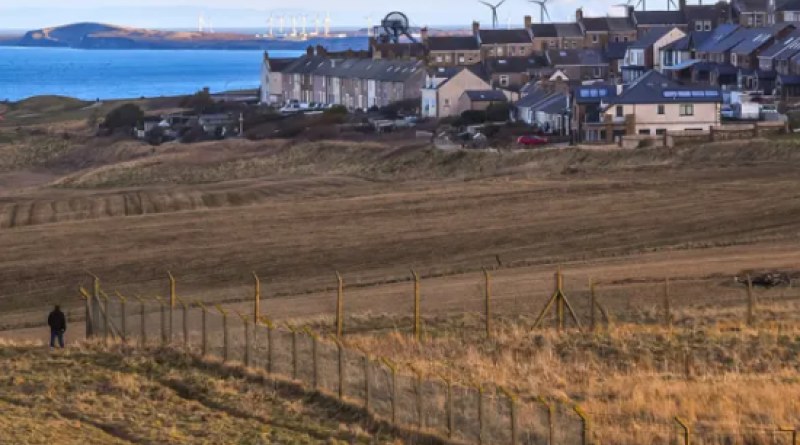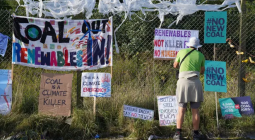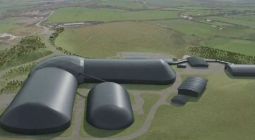Cumbria coalmine would hit global decarbonisation efforts, inquiry hears

UK ‘would be seen as worst hypocrite imaginable’ if plans for deep mine are approved, say environmentalists.
Approving a new deep coalmine in Cumbria would stifle international efforts to decarbonise industry and could produce a chain-reaction effect boosting prospective overseas mining projects, the public inquiry into the UK scheme has heard.
Boris Johnson’s aspirations to cast his government as an international climate leader at the upcoming Cop26 summit would be fatally undermined, the inquiry’s closing session also heard, if the mine were given the green light by the Planning Inspectorate.
Paul Brown, the counsel acting for Friends of the Earth at the inquiry, said such a decision “would fundamentally undermine any credibility this government has on the world stage”.
“Instead of being a world leader, we would be seen as the worst hypocrite imaginable,” he argued as part of his closing remarks, adding that the UK would lose any authority in its attempts to persuade developing countries to abandon similar fossil fuel schemes.
The impact of this decision on years of gradual gains in international negotiations could be devastating, he said.
His comments came as the parties giving evidence at the inquiry pressed their final cases to the Planning Inspectorate.
A final site visit along the Cumbrian coast, near Whitehaven, will take place early next week, with the door left open for final written details to be collected over a number of days thereafter. The decision will then go to Michael Gove, the secretary of state for levelling up, housing and communities, who will have the ultimate say.
A wide-ranging and at certain points heated inquiry has in its final days heard representations addressing carbon offsetting proposals, possible wildlife impacts the mine is expected to bring and the sulphur content of the 2.7m tonnes of coal West Cumbria Mining (WCM) plans to extract annually.
With the UK hosting the Cop26 summit in just four weeks’ time, climate scientists giving evidence at the inquiry have stressed the need for ambitious emissions targets set by Johnson’s administration to be met, while arguing the mine would make a mockery of any subsequent attempts to position his government as an international climate leader.
Prof Rebecca Willis, from Lancaster University, said: “West Cumbria Mining claims the planning inspector should ignore the carbon emissions that come from burning the coal from the mine.
“But the climate won’t ignore these emissions. The UK has a legal commitment to far-reaching climate action, and this mine takes us in exactly the wrong direction.”
The question of “end use” emissions – whether the carbon emissions produced by the combustion of the coal in blastfurnaces are factored in by the Planning Inspectorate – is thought to be key to the outcome in this regard.
Local supporters of WCM’s project remain confident the proposals will pass through this final planning stage. They are urging Gove to make a swift decision once the report is published, which they hope will be by the end of the year.
Amid concerns WCM’s financial backers may pull out of the venture, they point to a delay of more than 18 months before Gove’s predecessor, Robert Jenrick, ruled in autumn 2020 on an opencast coalmine application in Northumberland.
The Copeland borough mayor, Mike Starkie, said: “The planning inspector has heard essentially what the [local authority] planning panels heard on three occasions.
“I now expect the Planning Inspectorate will make the recommendation to government that the project should go ahead. And then hopefully we can put this sorry saga of protest behind us, get a shovel in the ground and get on with this mine.”
Mark Jenkinson, the MP for neighbouring Workington, said: “We’ll soon have Cop26 – which, frankly, has been a distraction and has led the debate in unhelpful directions at times – out of the way with.
“I hope the inquiry has given us the chance to have a rational, fact-based conversation around the mine. And I would urge the secretary of state to make a decision as quickly as possible once the planning inspector publishes his report.”
The Liberal Democrat MP for Westmorland and Lonsdale, Tim Farron, has written to ministers this week regarding the proposed introduction of a traffic light system as stringent as the one required for fracking, should the mine be approved, in light of the site’s proximity to the Sellafield nuclear facility.
Farron is now the only non-Conservative MP in Cumbria and, along with the Penrith MP, Dr Neil Hudson, who changed his position on the eve of inquiry, one of only two opposed to the coalmine in the county.
He told the Guardian the scheme “would be an environmental disaster”, adding that the only meaningful solution to the economic concerns raised by the project was to “pull the plug on the mine and instead invest in long-term renewable jobs for people in Cumbria”.
WCM has been contacted for comment.
1 October 2021
The Guardian





